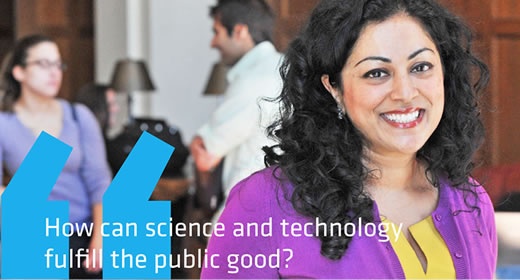
It seems like a straightforward question. If we produce more innovation, and quickly, then society will benefit. Our economy will grow because there will be markets for new technologies, and citizens will also benefit from access to the technologies themselves. Our science and technology policies, focused primarily on research funding and rewarding innovation through patents, reflect these goals. But in recent decades, while we have continued to enjoy the many benefits of science and technology, citizens have begun to raise difficult questions about the relationships between science, technology, and the public good. Do scientific priorities reflect public priorities? Is all scientific and technological development beneficial to the public, even in morally controversial areas? What is the responsibility of government to ensure that citizens have access to technology? Can governments do a better job of ensuring that their science and technology policies produce benefits for the public?
My research explores these questions. In my previous work, I demonstrated how the social and ethical consequences of technologies are embedded in their very design, and urged policymakers to think carefully and critically about these implications as they develop policy for emerging science and technology. In my forthcoming book, Patent Politics, I argue that our patent systems are extremely important—but usually ignored—sites that influence the ethical, social, economic, and political consequences of new science and technology. And my current research turns towards grassroots innovation systems in India, which foster low-tech, low-cost, and small-scale solutions built by poor and rural individuals who lack much formal education. Scholars and some policymakers suggest that these institutionalized efforts to promote innovation among the "knowledge rich and resource poor" could lead to more accessible, acceptable, and sustainable technological development in the developing world, and even provide the developed world with ideas about how to better ensure that science and technology hserve the public good. My new research aims to find out.
-- Shobita Parthasarathy
Below is a formatted version of this article from State & Hill, the magazine of the Ford School. View the entire Fall 2016 State & Hill here.